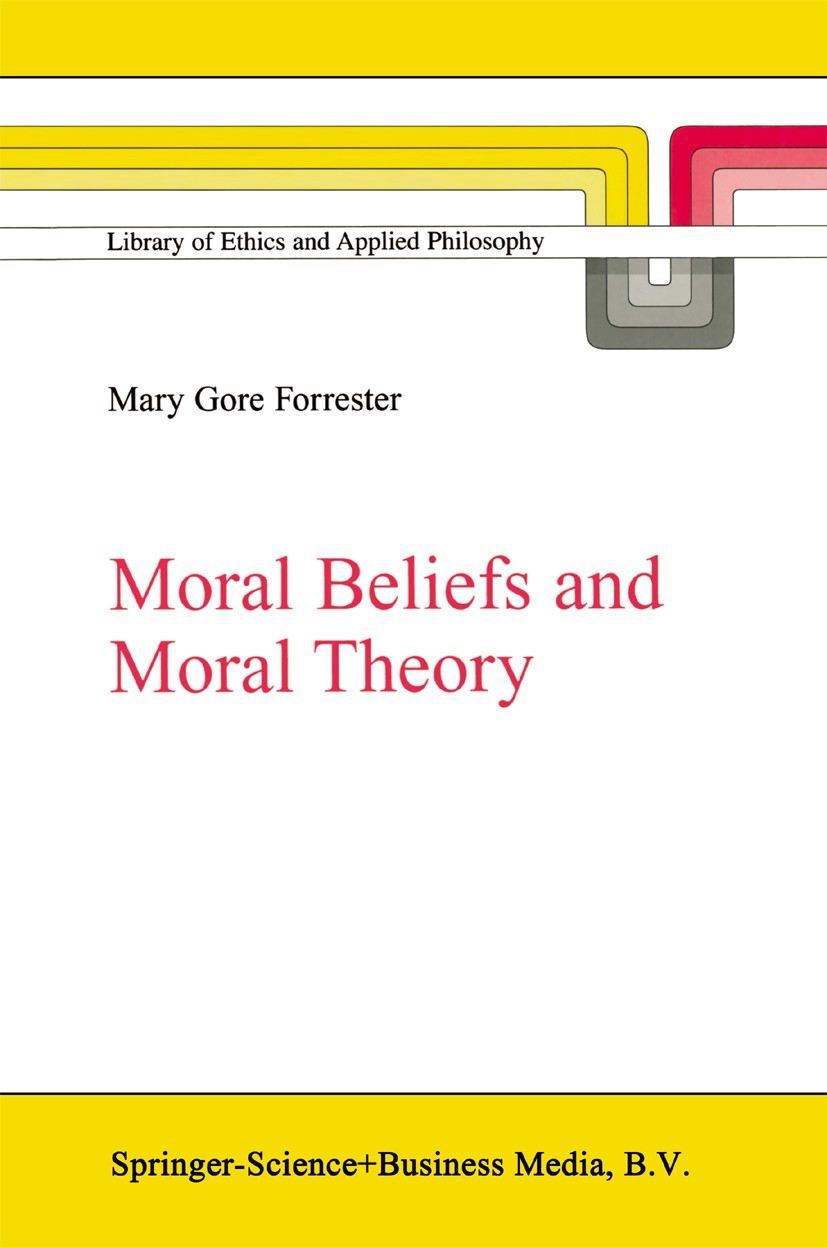| 书目名称 | Moral Beliefs and Moral Theory | | 编辑 | Mary Gore Forrester | | 视频video | http://file.papertrans.cn/640/639168/639168.mp4 | | 概述 | Includes supplementary material: | | 丛书名称 | Library of Ethics and Applied Philosophy | | 图书封面 |  | | 描述 | Some time ago I wrote a book (Moral Language, 1982) in which I argued that moral judgments are capable of being true (‘truth-apt,‘ to use a current phrase, or descriptive and having truth-value, to use a more traditional term), that the methods of discovering moral facts are fundamentally similar to those of discovering non-moral facts, and that moral judgments may be true. What I did not do at that time was to develop a moral theory which would demonstrate how the method of discovering moral truths would work and what the criteria of truth actually are. In a later work (Persons, Animals, and Fetuses, 1996) I did propose a moral theory as to what the criteria for moral truth are; however, I presented it primarily as an introduction to the discussion of several practical ethical issues and did not argue fully for that theory. It is high time that I did so, because without showing that such a theory can be developed my defense of moral realism is incomplete. It is all very well to say that we can discover what moral beliefs are true, but unless we can demonstrate just which beliefs are true, the thesis that we can discover this truth cannot be fully defended. For this reason the bigg | | 出版日期 | Book 2002 | | 关键词 | cognitivism; moral judgments; morality; philosophy; truth | | 版次 | 1 | | doi | https://doi.org/10.1007/978-94-015-9994-8 | | isbn_softcover | 978-90-481-6051-8 | | isbn_ebook | 978-94-015-9994-8Series ISSN 1387-6678 Series E-ISSN 2215-0323 | | issn_series | 1387-6678 | | copyright | Springer Science+Business Media B.V. 2002 |
The information of publication is updating

|
|
 |Archiver|手机版|小黑屋|
派博传思国际
( 京公网安备110108008328)
GMT+8, 2026-1-16 18:02
|Archiver|手机版|小黑屋|
派博传思国际
( 京公网安备110108008328)
GMT+8, 2026-1-16 18:02


